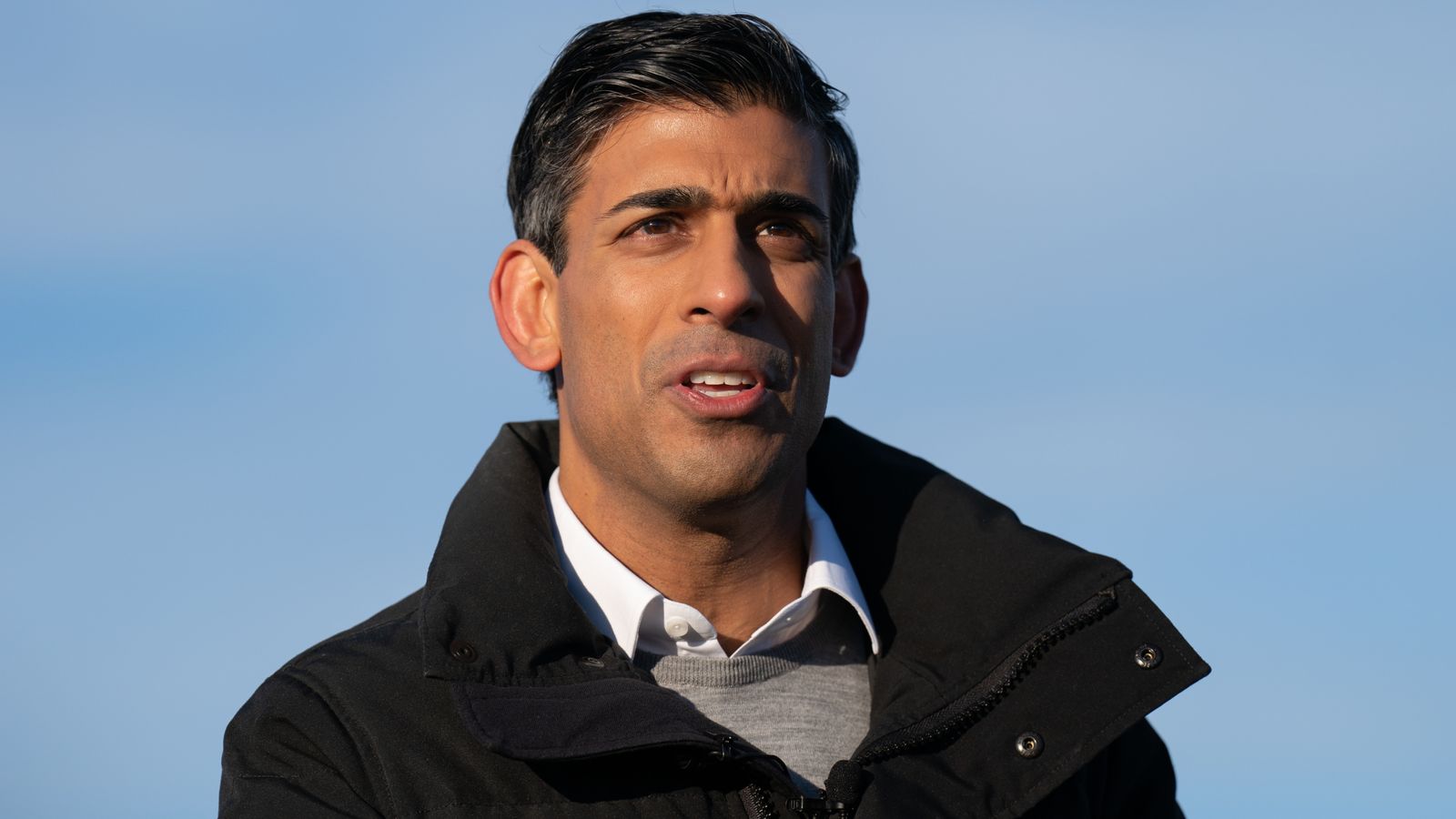Conservative MPs have called for lower taxes and a new Tory campaign group has been launched in a fresh double headache for Rishi Sunak.
On Sunday morning, a letter from 40 Tory MPs was sent to Chancellor Jeremy Hunt saying taxes are too high and offering suggestions of how to lower them by £7bn.
At the same time, a new campaign group was launched by a leading Tory donor and ex-home secretary Priti Patel in a backlash over tax rises and concerns over democracy within the party.
‘We need to be sensible’ on spending on nurses’ pay – latest politics updates
The letter to Mr Hunt criticised his recent autumn statement and said he is taxing the British public “at levels not seen since the end of the Second World War” while the government is spending “more public money in 2023 and 2024 than at any point since the mid-1970s”.
They said MPs need to reassure their constituents that their money provides value and is not wasted as they highlighted a report by the Conservative Way Forward group that is being published on Monday.
It provides examples of where taxes could be cut to save £7bn, with previous reports saying it recommends cuts from equality, diversity and inclusion initiatives.
Boris Johnson partygate investigation delayed after Number 10 evidence hold-up
Brexiteer Owen Paterson sues government in European Court of Human Rights over ‘unfair’ lobbying investigation
Boris Johnson paid over £276,000 for speech at US insurance conference
Mr Hunt is understood to be open to considering the report’s recommendations as part of a wider efficiency review.
The letter was signed by senior Tories, including former Conservative Party chair Sir Jake Berry, and ex-ministers Sir Iain Duncan Smith, David Davis and Esther McVey.
‘Take back control’ of party
In another headache for Mr Sunak, the Conservative Democratic Organisation (CDO) was launched on Sunday calling for Tory members to “take back control” of the party.
Billionaire Conservative donor Lord Cruddas, the party’s former treasurer, is spearheading the campaign with Ms Patel.
The group’s aim is to “empower party members and steer its political direction back to the centre-right” after Boris Johnson was ousted, Liz Truss was forced to step down after 44 days and Mr Sunak became prime minister without a members’ vote.
It was created, the group said, following anger at Mr Sunak’s “left of centre position” on raising taxes.
Lord Cruddas, who previously organised a petition to keep Mr Johnson in office after he was ousted by his own MPs and claimed Ms Truss faced a “conspiracy” by the backbench 1922 Committee, said democracy within the party is “dying on its feet”.
The group also has “serious concerns” about the political views of “many Tory MPs” elected under David Cameron, which gave party headquarters the power to overrule local associations in candidate selections.
Ms Patel said: “Our grassroots are the heart and soul of our party.
“They work tirelessly to campaign for Conservative votes, knocking on doors, delivering leaflets and fundraising locally.
“They are our greatest assets and advocates and they should never be taken for granted. Party members are committed to our values of freedom, enterprise and opportunity and we need to empower them to have more say over our policies and candidates.
“That will make us stronger, more successful in government, and boost our membership numbers.”
Click to subscribe to the Sophy Ridge on Sunday podcast
Reacting to the letter saying taxes are too high, a Treasury spokesman said: “The chancellor has been clear that spending discipline is crucial for building market credibility, ensuring economic stability, driving long-term growth and sustainably funding public services.
“Value for money remains paramount for the Treasury. To help manage pressures from higher inflation and keep spending focused on the government’s priorities, departments will continue to identify efficiency savings in day-to-day budgets.
“To support departments to do this, the chancellor is launching an efficiency and savings review. This will include reprioritising spending away from lower-value and low-priority programmes.”








